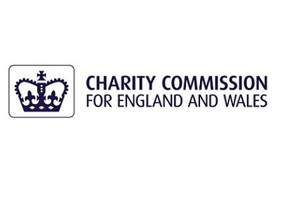Local authority children’s services do not have the resources to handle the challenges of the Covid-19 pandemic, a report by five leading children’s charities says.
The combination of a decade of cuts and an increase in demand for help mean local authority children’s services have been reduced to crisis-driven work, rather than lower cost early intervention work.
A report by The Children’s Society, Barnardo’s, Action for Children, NSPCC and the National Children’s Bureau urges the government to give extra resources to local councils as Covid-19 is exacerbating pre-existing issues.
During the lockdown there is additional concern that more children will become hidden from the view of professionals, and could slip through the cracks.
Austerity has meant councils can only afford to get involved when children have reached crisis point and need costly interventions, the report states.
Although the best long term option is to invest in early intervention services, like children’s centres and youth workers, they cannot afford to do this.
'We need a new approach'
Peter Wanless, chief executive of NSPCC, said: “For a decade, local authorities have balanced reductions in funding against the growing costs of placing more children in increasingly expensive residential provision by reducing other services and shifting resources to plug gaps.
“This was not sustainable before the coronavirus crisis and the impact of the pandemic and lockdown on children means it cannot continue. We need a new approach.
“The government must take the opportunity of the spending round to set out a plan for investment in children services that will deliver the evidence-based interventions that can make all the difference for children and families, giving them the platform they need to have happy and fulfilling lives.”
Indeed, funding from central government for children’s services has fallen by £2.2bn between 2010-11 and 2018-19. Spending on early help has dropped by almost half, 46%, during this period.
At the start of the decade, late intervention, including child protection teams and youth justice services, accounted for 58% of local authority spending on children and young people’s services. This had risen to 78% by 2018-19.
The biggest increase in spending was for services for children in care, soaring by 40% from 2010-11 to 2018-19.
The report finds councils have had to make difficult spending decisions to bridge the gap between the funding received from central government and what they need in order to keep services going.
Councils are reallocating funds from other budgets and this has led to them being able to partially plug the funding gap, but the leading children’s charities warn this is not sustainable in the long run.
Perfect storm facing children’s social care
The charities are urging government to give funding to local councils to repair the children’s social care system.
This will allow them to be able to afford preventative early intervention services like family support and children’s centres. And, by doing so, fewer families will reach crisis point and so they will have to spend less on costly late intervention work.
'Children’s social care is rapidly becoming a bare bones service'
Javed Khan, chief executive of Barnardo’s, said: “We have long warned about the 'perfect storm' facing children's social care, and the gap between demand and resource will widen further as a result of coronavirus.”
He added: “We know there will be a massive increase in demand for support, with the effects of the pandemic felt for years to come. But the overstretched system cannot cope, and the government must step in to fund vital early intervention services, so families get the help they need before reaching crisis point.
"But it is not simply about money - we need to spend resources wisely. This is why Barnardo’s is taking a radical new approach - working with national and local partners and investing our own resource to co-design and deliver services that change children’s lives, and the system around them, for the better.”
Anna Feuchtwang, chief executive of the National Children’s Bureau, said: “Children’s services, left reeling from a decade of cuts, now have to meet the complex extra needs of children and families brought on by the pandemic, pushing the whole system of support further towards breaking point.
“In this climate, children’s social care is rapidly becoming a bare bones service that only responds in emergencies.
“The government must act and give local authorities the funding they need to help children before their problems escalate.”
Related articles










